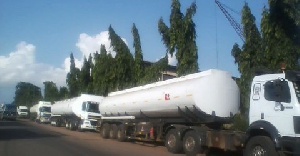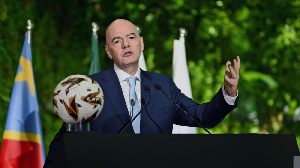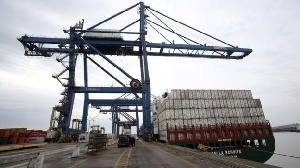The Association of Oil Marketing Companies (AOMC) says government’s approach to collecting the 17.5 percent tax on petroleum products is threatening to push some of its members out of business.
According to the Special Petroleum Tax law, the 17.5 percent tax is slapped on ex-depot price and stipulates that oil marketing companies have up to 15 days after taking stock to pay the taxes to the Ghana Revenue Authority (GRA).
But Kwaku Agyemang-Duah, AOMC’s Chief Executive Officer, told the B&FT “This means that we have to pay upfront. By the time the 15-day deadline is due you may have not have sold all your stock. It’s unlike VATm where the tax is borne by consumers and later paid to the GRA.
“It’s a tough one for us, and at the end of the day when you work it out you literally have to borrow to pay the special petroleum tax. It’s huge. We have been discussing with the authorities and we hope to get to an amicable settlement,” Mr. Agyemang-Duah said in Accra.
The SPT was introduced this year as part of measures to rationalise the VAT regime and change the petroleum pricing structure. This move follows a persistent shortfall in government’s tax revenues in recent years.
The 17.5 percent tax is levied on petrol, diesel, liquefied petroleum gas, natural gas and kerosene as part of VAT reform, alongside a change in the petroleum product pricing structure. Excise tax on petroleum was levied on volumerather than by value.
Government is hoping to raise about GH¢1.4billion from the SOT to support its budget, which has recorded persistent deficits.
But government’s bid to shore-up tax revenues, Mr. Agyemang-Duah said, is having a severe impact on the liquidity of some of his members. According to him, the Association which has 60-members, is trying to engage authorities to have the matter resolved.
“We are trying to work with the Ghana Revenue Authority to see how best together they can have their taxes and we can also be comfortable in their work,” he added.
According to him, oil marketing companies are going to persist with their demands till government reconsiders its stance. He said there are several challenges that players in the sector continue to face, and as such it’s in the interest of government to see that the sector is playing its key role in the economy efficiently.
Other challenges
Already, oil marketing companies have spent in excess of GH¢100million since the start of the year to battle the ongoing power crisis that has singlehandedly brought some businesses to their knees and facing collapse.
According to the (AOMCs) there are more than 3,300 retail outlets for petroleum products across the country, with a retail outlet on average spending about GH¢10,000 a month to power generator sets.
Under the current load-shedding regime wherein power is restored for 12 hours after every 24 hour outage, businesses like petroleum products retail outlets that rely on power face more than 20 days without power in a month.
Business News of Wednesday, 13 May 2015
Source: B&FT
Special Petroleum Tax chokes OMCs
Opinions












